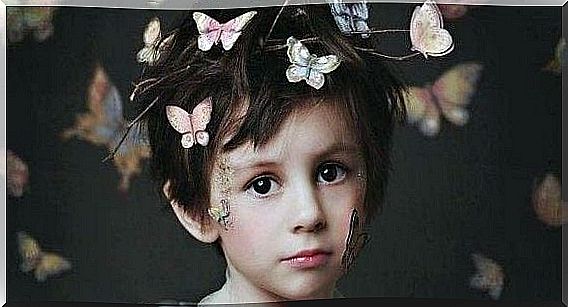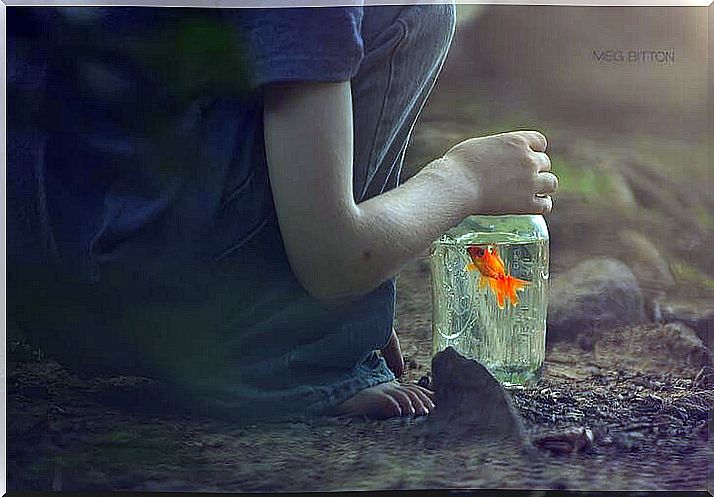Three Signs Of Childhood That Last Forever

Childhood is that period when a wonderful paradox arises: we can build the strongest foundation in the shortest possible time, without even realizing it. At the age of four, our sense of being already begins to develop, so from that point on, all that’s left is to develop or hold back the inertia we accumulated during our early years of life.
Childhood leaves marks that last forever. They are indelible footprints that are especially apparent in the attitude we have towards ourselves and others. But some of these footprints are persistent and profound, due to the profound impact they have on a child’s mind.
Below we will tell you about the three signs that we internalize during childhood that we will never get rid of.
Not being able to trust after childhood

If children are repeatedly disappointed by their parents or guardians, it can be difficult for them to trust others, or even themselves. They have to fight the tendency to mistrust if they want to have intimate relationships with others.
A child is disappointed when parents promise things they cannot or do not want to deliver. It is important for children that they get the toys they are promised when they achieve a certain goal. That they go to the park because it was promised that they would. That they get the attention they were promised.
Minor breaches of trust may go unnoticed or seem unimportant to adults, but to the child they are lessons in what to expect from people, always, from people who are close.
When children see their parents lying to them, they will learn that words have no value. It will then be difficult for them to believe others and they will not bother to give meaning to their own words. This sign will create problems during development, trouble making connections with others and creating real intimacy where they feel safe with someone.
Fear of abandonment
A child who feels alone, ignored or abandoned will begin to believe that loneliness is something completely negative. They can choose one of two paths: they become overly dependent on others, constantly needing someone to protect them and be with them, or they reject all forms of companionship for fear of being abandoned again.
Those who choose the path of dependence will enter into any relationship, as long as they don’t have to feel alone. They think they can’t handle loneliness at all, so they are willing to pay any price just to have one partner.
Those who escape the fear of abandonment through extreme independence are no longer able to enjoy the affection and intimacy of another. For them, love equals fear. The more they feel for another person, the more anxious they become and the more the urge to flee grows. They are the kind of person who cuts ties so as not to have to feel that fear that they will lose that person.
The fear of rejection

Children who are always questioned and who are always slammed by their parents tend to become their own worst enemy. In this way, they develop an internal dialogue of self-blame.
These children will probably never feel cohesive in what they do, say, or think in adult life. They will always find a way to sabotage their own plans and it is very difficult for them to accept that they also have good qualities and skills. They will always feel that they do not deserve affection or understanding and that their expressions of love for others are denied.
In general, they become isolated and lonely adults who panic in situations of social contact. At the same time, they are very dependent on the opinion of others. When confronted with the slightest criticism from others, they completely tear themselves apart, for they do not know how to distinguish an objective observation from a personal attack.
If the child is not only rejected but also humiliated, the consequences are even more serious. This humiliation creates unresolved feelings of anger that constantly create a feeling of powerlessness, which can make the person a callous tyrant who also humiliates others.
The signs of childhood are hard to change. But this doesn’t mean they can’t be improved or redirected so that they turn into something positive. The first step is recognizing that they are there and that they need to be worked on so they don’t define the rest of our lives.










